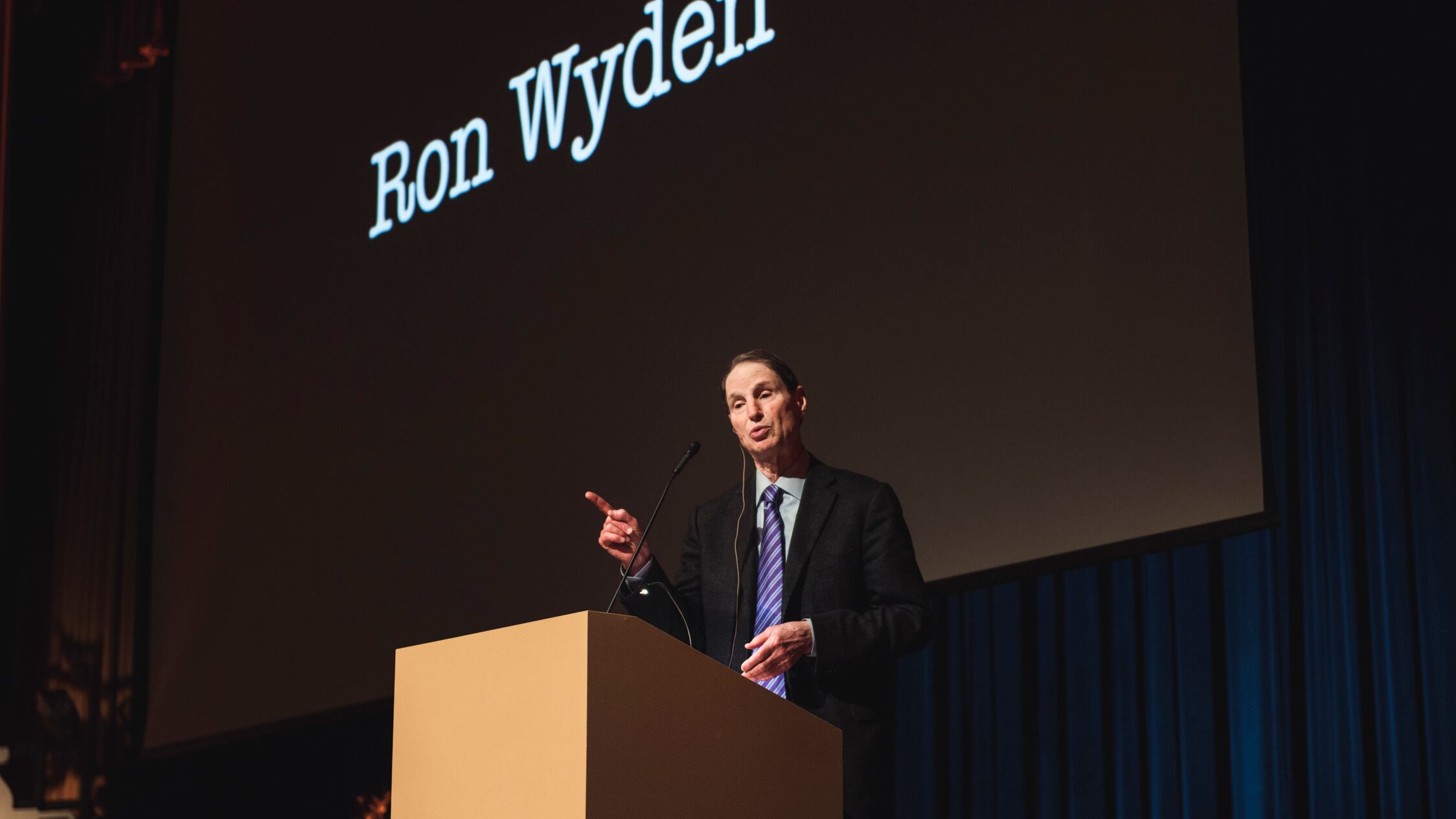US Sen. Ron Wyden (D-Ore.), a key member of the Senate Select Committee on Intelligence that's investigating connections between the Donald Trump organization and foreign spies, oligarchs and gangsters, suggested this morning that a similar investigation in the House of Representatives may have been compromised beyond all hope of recovery.
Wyden was asked about the scandalous conduct of House Intelligence Committee chairman Devin Nunes (R-Cali.), who informed President Trump about information received by his committee that affected the White House's questionable claims of victimhood.
"What happened in the House of Representatives was a massive hit on the credibility of that investigation," Wyden said. "I don't as a member of the Senate run around and tell the House what to do. But they have a massive challenge now in rehabbing their credibility, if that is possible."
The Senate Select Committee on Intelligence, on which Wyden serves, will hold its first public hearing on the matter next Thursday, "looking at the foundations of various policies," Wyden said. "I don't think that's enough. We've got to show people concrete results into the investigation after the events of last year."
If similar credibility problems emerge in the Senate investigation—led by intel committee chairman Sen. Richard Burr (R-N.C.)—Wyden said all options were on the table. "If the Senate committee isn't willing to do it, we can talk about independent commissions, we can talk about special prosecutors," Wyden said.
"It is critically important that this committee quickly show concrete results of the investigation in order to have credibility," Wyden said. "Senators do not want to look like they're sweeping this under the rug," he went on, adding that "the legitimacy of our government" was at stake.
Wyden was speaking this morning at TechFest NW, hosted by WW, at the Portland Art Museum. WW examined Wyden's role in ongoing investigations of foreign influence in the Trump administration in a cover story last month.
In his opening remarks at the tech conference, before taking questions from the audience and WW editor Mark Zusman, Wyden cast President Donald Trump as the captain of an "NBA All-Star team of surveillance cheerleaders," flanked by his handpicked Central Intelligence Agency director Michael Pompeo and the holdover Federal Bureau of Investigation director James Comey.
"Technology makes mass surveillance easy. It was clear years ago that we couldn't count on the limits of technology to protect our liberty. The only protections that the American people can count on are those that are locked into the law," Wyden said. "Now we've got a President, and an administration with a fair number of allies in the US Congress, that are attacking some of these core foundations, some of the checks and balances, and are openly asking to use some of the government's surveillance capabilities for political ends. This is something that was unheard of."
Wyden noted that Pompeo has argued that "legal and bureaucratic impediments to surveillance should be removed. Dick Cheney, even in his dreams, never tried anything close to what you're new CIA director advocated in the Wall Street Journal," Wyden said.
Oregon's senior senator did not attempt to hide his annoyance at FBI director Comey, whom he questioned at an open Senate hearing in January.
"I said, 'Mr. Comey, are you investigating the connections between Russians and the Trump campaign?' He said, 'Oh my goodness, I couldn't talk about open investigations.' After everyone was done eye-rolling, they recalled he had plenty to say about open investigations 11 days before the Presidential elections. So everything he said last week he he could've said in response to my questions in January."
Wyden also said he will be introducing two pieces of legislation that aim to reign in the government's surveillance powers.
The first would shut down the Trump administration's announced plans to expand searches of digital devices at international border crossings. The bill would require the government to get a warrant based on probable cause searching phones and computers at the border, Wyden said. It will also forbid the government from "indiscriminately demand[ing] passwords and PINs from people," or coercing people into giving up that information by denying or delaying them at the border.
"If we allow the government to demand access to the social media accounts of Americans, and to search our devices without probable cause, we are really in serious straits folks. Serious straits. And I want you to know I'm going to fight this with everything I have," Wyden said.
The second piece of legislation Wyden plans to introduce will curtail an expansion of the hacking powers of federal law enforcement.
Wyden said the expansion was passed last September "under the cover of dullness," without Congressional debate, with changes to the federal rules of criminal procedure.
Wyden offered the TechFest audience five things they could do to protect their privacy and liberties in dangerous times: calling lawmakers, marching, recruiting support in swing states, supporting whistleblowers, and tipping off officials (like Wyden) to possible wrongdoing.
"You need to be frontline advocates for policies that prove digital liberty and security aren't mutually exclusive," Wyden concluded.
An audience member who said he was the son of a Holocaust survivor later followed up with a question about Wyden's last suggestion. "Any means we communicate with you is going to be digital," the man asked. "Can you guarantee us that when we communicate with you, we won't end up on an undesirables list for some future retribution?"
"Great question," Wyden said. "No one can guarantee 100 percent protection for everyone who gets in touch."

